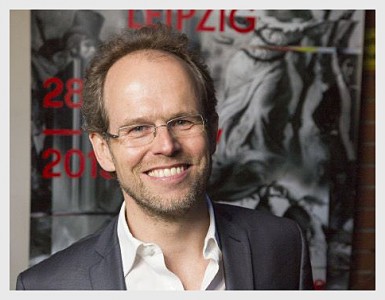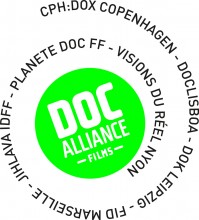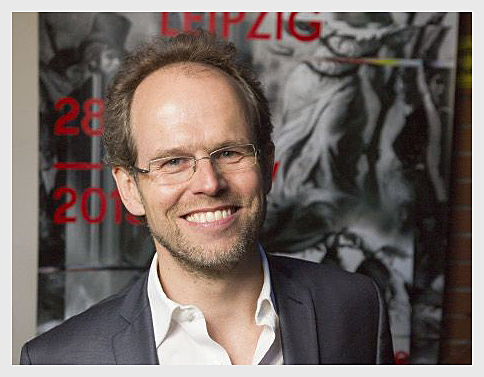 ‘We have achieved a lot with the festival – I can hand it over in good shape’
‘We have achieved a lot with the festival – I can hand it over in good shape’
Claas Danielsen gives an interview on his parting and his last festival
Besides offering a rich programme, the 57th edition of DOK Leipzig, the German representative of the Doc Alliance platform, is marked by a significant parting. After 11 successful years, Claas Danielsen leaves the director’s chair. How will he part with the festival and how does he evaluate the past decade of the festival life he has co-created? Read more in our guest post.
Claas Danielsen, you are in the midst of preparations for your 11th DOK Leipzig. Does it feel different since it’s going to be your last festival?
This is naturally a very special transition year both for me and for the festival, as I’m going to quit at the end of the year. In this respect, it sometimes feels a little melancholy. At other times, however, I look forward to the freedom of the next year, as I won’t be under the extreme work pressure that we’re facing each year before the festival.
Why have you actually decided to close the chapter of DOK Leipzig?
I feel that after the ten years and eleven festivals I have been responsible for here in Leipzig, I have achieved most of what we have resolved with the team. The festival is in perfect shape and I can hand it over as a well-functioning business. Besides, I believe that after ten years it’s time for someone new to come with fresh ideas and new visions. I’m in my late forties and I have personally arrived at a point in my life when I would like to change; and this is a perfect moment for it.
You have left your mark on the festival, have changed it a lot. What are the most important changes in retrospect?
Besides being a brilliant festival and the oldest one of its kind in the world, DOK Leipzig has also become an industry meeting point. At the moment, 1 700 experts from across the globe come to Leipzig to meet, learn, finance new film projects and introduce the films shown at the festival to the world. DOK Leipzig is one of the leading meeting points in this field in Europe. This fact has permanently reinforced the quality of the festival programme. Moreover, we are also making a foray into new fields such as transmedia storytelling, we have a year-round offer of further education and support the media competence of children and youth. DOK Leipzig is now a modern festival with numerous competitions, attractive awards, and an excellent and varied programme which is again in the vanguard internationally.
Have the films changed in the past ten years?
The films have definitely changed in the past ten years as well. Dogmas have fallen, many directors playfully navigate between genres, elements of fiction and animation are employed in documentary film. This makes the genre much more attractive for audiences. This is also apparent at our festival. The visitor numbers keep increasing each year.
DOK Leipzig has worked its way back into the leading group of international documentary festivals. What are the attributes that define the character of DOK Leipzig in your opinion?
First of all, our festival offers a high quality programme based on the unique character of the films rather than the premiere status. We discuss the films very profoundly in the selection committee and make a democratic decision. Instead of the director pushing his own taste, we’re putting together a multifaceted, handpicked programme. Besides, I’m always being told by guests from around the world that the festival is very friendly and that they feel very welcome here. They appreciate that DOK Leipzig is transparent enough for them to be able to meet their colleagues in a relaxed atmosphere and, at the same time, big and international enough for them to watch outstanding films from across the globe and meet interesting guests.
Considering this year’s festival, can you say what its thematic profile will be like despite the festival being so far ahead?
We add accents to our festival by means of special programmes. This year we will focus on the states that have emerged from former Yugoslavia and illustrate the local situation, including thrilling retrospective links to the film history of the region. At the same time, our competitions and the international programme also reflect conflicts such as the war in Iraq and the conflict in Ukraine which also keep us very busy at the moment. Moreover, fresh films by documentary filmmakers arrive, virtually right from the editing table. These films go much deeper into the local reality and the lives of local people than the latest news reports can. They are often stories told from the very subjective perspective of the filmmakers which really get under your skin.
Is it so that both documentary film in general and films screened at DOK Leipzig are getting ever closer to the latest news?
Yes, that is almost the case. For instance, we screen films that were shot at Maidan Square and now come to our festival while the Ukrainian crisis is still at full boil. Due to the fact that the conflicts in the Arab world are unfortunately escalating, instead of being solved, films from Egypt or Tunisia that we also show are very topical as well. Naturally, documentary filmmakers cannot be that current, as it takes them a long time to win the confidence of their protagonists and to carefully elaborate their films. Documentary films are much more refined and are made for the big screen. In spite of that, an increasing number of films have completely independent funding and are finished with great effort very fast.
The interview was published on the DOK Leipzig website on September 2, 2014 and on the DAFilms.com website, September 08, 2014.
 The online portal DAFilms.com is the main project of the Doc Alliance festival network formed by 7 key European documentary film festivals (CPH:DOX Copenhagen, DOK Leipzig, FID Marseille, Jihlava IDFF, Planete Doc Film Festival, Visions du Réel Nyon, Doclisboa). It represents an international online distribution platform for more than 1,000 documentary and experimental films focused on European cinema.
The online portal DAFilms.com is the main project of the Doc Alliance festival network formed by 7 key European documentary film festivals (CPH:DOX Copenhagen, DOK Leipzig, FID Marseille, Jihlava IDFF, Planete Doc Film Festival, Visions du Réel Nyon, Doclisboa). It represents an international online distribution platform for more than 1,000 documentary and experimental films focused on European cinema.
Read more festival stories:
:: 6 Facts You Should Know about Leipzig’s DOK Market
:: Barbara Ott and Simon Rühlemann on how ‘SUNNY’ became a festival hit
